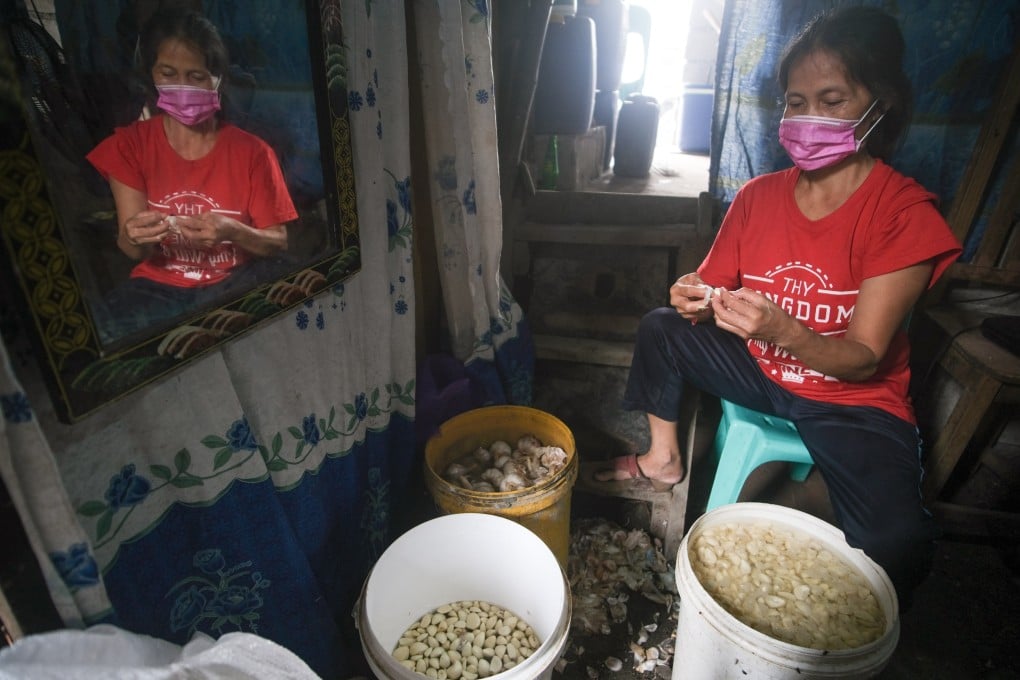Advertisement
The garlic peelers of Manila: under the skin of the Philippines’ informal economy
- It’s a key ingredient in Filipino cuisine, but the large chains and companies that use it benefit from underpaid workers with little to no legal protection
- A proposed new bill looks to establish formal rights for those in the shadow economy, but it’s still a long road to a fair wage
Reading Time:4 minutes
Why you can trust SCMP
1

Even when she’s not at work, the scent of garlic lingers on Marites Arendain’s calloused palms – her “garlic hands” are the legacy of years spent peeling bucket after bucket of the pungent vegetable.
She earns 80 pesos (US$1.60) for the 15kg sack of garlic she peels each day, a tiny fraction of the minimum wage of 537 pesos (US$10.70) in Manila – just enough to buy her family of eight a kilogram of rice and some dried fish.
“Peeling garlic the whole day burns my hands, especially when it is fresh or thick,” Arendain said.
There is a robust demand for garlic, a key ingredient in Filipino cuisine, from small restaurants and large fast-food chains in the Philippine capital. Baseco, a poor community near the city’s port, is where a lot of that garlic is peeled before it ends up in boxed meals, tinned goods, or the fancy dishes of luxury hotels.
Arendain is one of the hundreds of women in Baseco who are part of the shadow economy. She works from home, which – despite the long hours and meagre income – allows mothers such as her to care for their children while also making some money to put food on the table.
During heavy rain, it’s not uncommon for her to stand knee-deep in floodwater, a clove of garlic in her left hand and a flimsy cutter in the other.
Advertisement